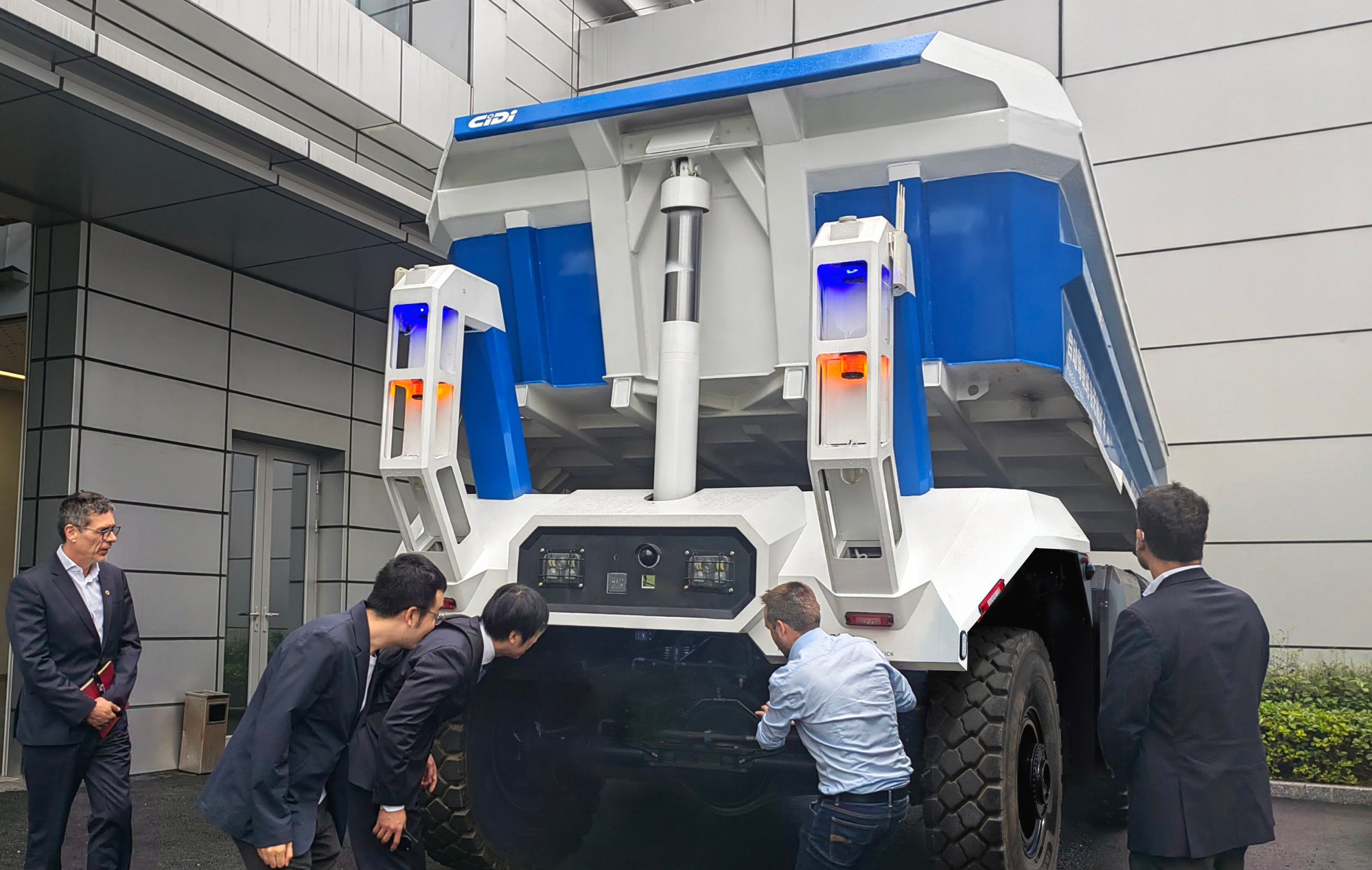
Hong Kong-based CiDi looks to Middle East as growth market for autonomous commercial vehicles amid construction boom
- Unicorn is in talks to set up a long-term presence in Saudi Arabia as the kingdom invests heavily in infrastructure, executives say
- CiDi’s products include driverless vehicles for mining, quarrying, tunnelling and construction excavation
“We want to improve commercial and industrial work safety and efficiency in the kingdom,” Ma said. “We want to improve people’s job opportunities, and we want to do so in a way that is sustainable and environmentally friendly.”
Albert Hu, general manager at CiDi, said the company’s expansion plan in the Middle East is driven by the region’s strong economic growth momentum and “mutually beneficial positioning with mainland China and Hong Kong”.
“It’s a very welcoming business environment for a company like us,” he added. “We’re very focused on technology and product … and on commercialising autonomous driving, because the technology is already here.”
The gulf states’ burgeoning construction and logistics industries, along with harsh weather, call for constant innovation around autonomous driving, creating added opportunities for CiDi, he said.
Saudi Arabia leads in the Middle East and North Africa (MENA) region in terms of construction spending, which is estimated to reach US$70 billion annually in 2024 and US$91 billion in 2029, according to a report published in April by the United States International Trade Commission.
Driving the growth is Saudi Vision 2030, a government programme that involves heavy investments in infrastructure development aimed at reducing the kingdom’s dependence on fossil fuels, the report said.
Founded in 2017, CiDi’s main solutions include high-level assisted driving and autonomous haulage, which includes driverless vehicles in settings like mining, quarrying, tunnelling and construction excavation, according to the company.
CiDi is backed by leading venture capital firms including Sequoia Capital and Baidu Ventures. The start-up was valued at over US$1 billion in its latest funding round in early 2024.

In April, CiDi hosted 12 Neom executives in Shenzhen during their weeklong trip to mainland China and Hong Kong. The Neom delegation was led by CEO Nadhmi Al Nasr and Andreas Cangellaris, president of Neom University, according to an internal document viewed by the Post.
During the Shenzhen trip, CiDi’s founding team briefed Neom executives on the start-up’s latest progress and solutions, and showed one of the vehicles that it is hoping to deliver within the next year, Hu said. The vehicle is a 30-tonne-capacity electric truck specifically designed for self-driving operations in rough terrain.
“Our partners in the Middle East want to build long-term, strong, and mutually beneficial relationships, and product is just a starting point for cooperation,” he said. “China has a lot to offer, whether it’s the maturity of our supply chain or the strength of our construction industry.”
CiDi is also exploring business opportunities with authorities in the United Arab Emirates to offer products for quarrying and smart transport, the executives added.

